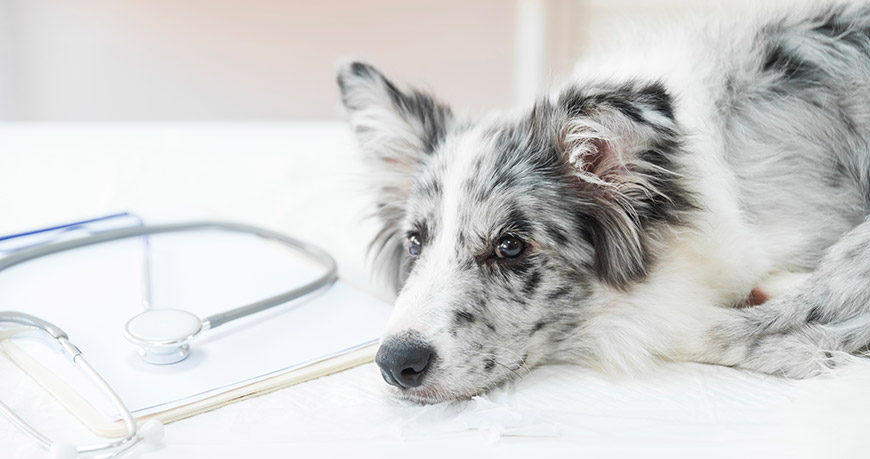
Here at Queen Creek Veterinary Clinic we have seen too many cases of parvovirus in the last week. Fortunately those we have seen are doing well and are on the road to recovery. We want to share some insight on parvovirus. Knowledge is power when up against viruses that are very much preventable.
What is Parvovirus?
Canine parvovirus (CPV) is a nasty, highly contagious illness. The virus has a tendency to attack rapidly reproducing cells, such as those lining the gastrointestinal tract. It is spread from dog to dog by direct or indirect contact with feces. That means that your dog can get CPV from either eating an infected dog’s poop or simply sniffing an infected dog’s hindquarters! Your dog can also get CPV from infected soil or an environment that has been infected. It can live in the environment for a long time (no definitive time frame has been determined). It can be especially hard on puppies who haven’t yet been vaccinated because their immune systems haven’t yet fully developed.
What are the symptoms of Parvovirus?
Symptoms can include one or many of the following symptoms. If your puppy is exhibiting any of these signs call us to schedule an appointment.
- Vomiting
- Diarrhea
- Lethargy
- Anorexia
- Abnormal body temperature (sometimes high and sometimes low)
- Abdominal pain/discomfort
Parvo Treatment
Because parvovirus is a virus there is no cure, just management and supportive care to help them through the virus. Left untreated, puppies can die from this disease so it is essential that supportive care is administered as soon as possible. Ideal treatment is 24 hour hospitalization to ensure your puppy does not succumb to dehydration.
Treatment is aimed towards managing your dog’s dehydration and electrolyte imbalances, and includes:
- IV fluid therapy
- Nutritional therapy
- Medications to control vomiting, diarrhea, and nausea
- In severe cases, blood plasma transfusions.
- Pain medications
In addition, antibiotics are often prescribed to prevent bacterial infections, which can take advantage of your dog’s weakened state and often prove to be fatal. In general, dogs shouldn’t eat or drink until symptoms have subsided, and fluid support is usually needed for several days. Your veterinarian will discuss the best course of action to get your dog back to his normal, happy, healthy self as soon as possible.
Parvo Prevention
Prevention is the key to keeping your pet safe. The ultimate prevention for parvovirus is to not let your puppy go anywhere another dog/puppy is able to go. That means not even going out your front door! If you need to take your puppy somewhere that other dogs have been please pick up and carry your puppy to a safe place. For instance if you need to bring them to the veterinarian for vaccines, carry your puppy from your home to your car, then from the car to the scale in the clinic, then from the scale to the exam room.
On that topic, make sure you puppy completes his/her full puppy series of DHPP vaccines. These vaccines need to be boostered every 3-4 weeks until your puppy is at least 16 weeks old. Ideally they need at the very least 2 boosters to be effective. Also, at home vaccinations are taking a risk on prevention. At home vaccines are not regulated so the effectivness of those vaccines can be questionable. We have seen many cases of at home vaccinated puppies here with parvovirus. Decrease the risk and have your puppy vaccinated by a licensed veterinarian. Again do not take your puppy anywhere until their full series has been completed.
If you have had parvovirus in your home please contact us for advice on what to do. Parvovirus lives in the environment for a long time, sometimes even with proper disinfection.
If you have any questions or concerns regarding your pets and parvovirus, call our office today and a technician can help you!



